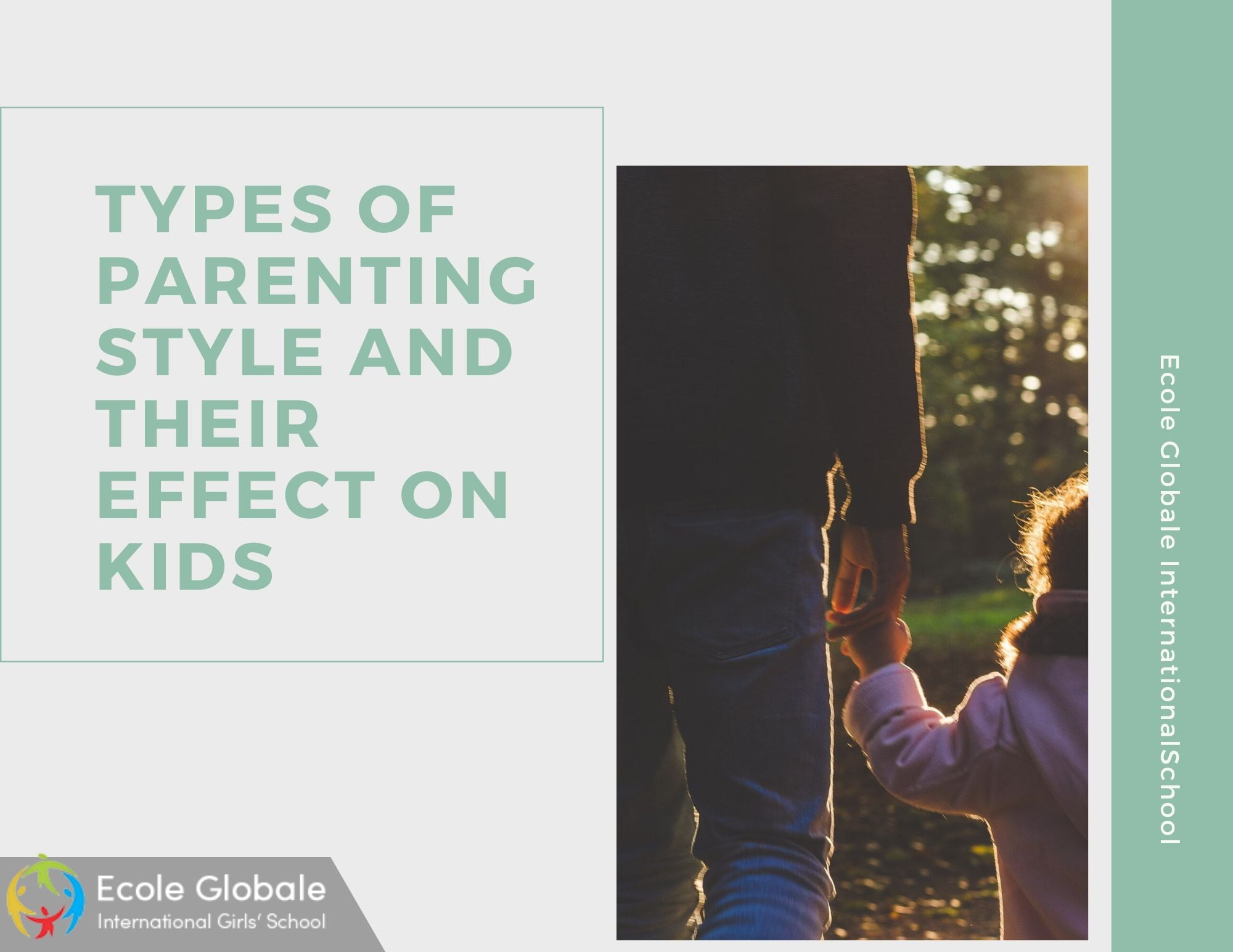TYPES OF PARENTING STYLE AND THEIR EFFECT ON KIDS
Parenting style plays a very important role in the healthy growth and development of your child. Your interactions with kids and discipline are very influential factors. Although schools in India teach a lot of new things to kids, however, improper parenting style can affect the child in various ways like his/her weight or his/her feelings, etc.
Four types of parenting styles have been identified::
- Authoritarian
- Authoritative
- Permissive
- Uninvolved
Each style has a different approach and can be identified through various traits.
1. Authoritarian Parenting
You might be an authoritarian parent if you relate yourself to statements like, “not considering your child’s feelings or believing that kids should be seen and not heard’. Such parents believe rules should be followed without exception. They always expect obedience from their kids without being questioned about a rule and do not believe in any negotiations. Since problem-solving challenges or obstacles are very important for a child’s development but authoritarian parents do not let their kids get involved in this. Consequences are enforced with little regard for a kid’s opinion.
Instead of discipline, punishments are used by such parents. They invest in making their kids feel sorry for their mistakes rather than teaching them how to make better choices. Thus, such children tend to follow rules most of the times and if their opinions aren’t valued they may face self-esteem problems.
They may also become argumentative and may behave aggressively with their parents out of anger. Because of such strictness children may become good liars in order to avoid punishment.
2. Authoritative Parenting
If you enforce explained rules and give consequences and also put a lot of effort to maintain a good relationship with your child then you may be an authoritative parent. Such parents take their children’s opinions into account and also their feelings are validated. Such parents use positive discipline strategies like rewards, praise, etc. to prevent behavior problems, with all their time and energy. Kids of such parents are found to become responsible adults and comfortable enough in expressing opinions. They also become good at evaluating risk and making decisions.
Authoritative parenting helps in raising child which are tend to be more happy and successful
3. Permissive Parenting
If you think less interference can make your child learn best or you rarely set rules for your child or rarely give out consequences then, you might be a permissive parent. These parents steps in when their child is in some serious situation and are very lenient.
They believe in “kids will be kids” and easily forgives them. They usually do not give out consequences, even if they do, they never stick to it. They do not stick to the decided consequences and might give privileges back if he promises to be good.
Permissive parents usually keep a friendly attitude with their kids by encouraging them to share their problems but usually, don’t put much effort into solving them. Permissive parenting may affect a kid’s academic performance. As they don’t appreciate authority and rules, kids may exhibit the behavioral problem, have low self-esteem and may report a lot of sadness. They are at greater risk of having obesity or dental problems as permissive parents never restrict junk food intake nor do they imbibe in them good habits like brushing teeth.
4. Uninvolved Parenting
If statements like, “you rarely know where your child is or you don’t ask about his/her school or homework or rarely spend time with your child”, sounds familiar, then you might be an uninvolved parent. Such parents pay less attention to their kids, having little knowledge of their whereabouts, not giving them proper guidance. They do not give them proper nurturing and expect children to raise themselves and may sometimes unintentionally neglect them.
Uninvolved parents can neither meet the physical nor emotional needs of their child. They may not be able to meet the kid’s emotional or physical needs due to mental health problems. At times, they might not give sufficient time and energy for their child’s development and may be more concerned with other household problems.
Self-esteem issue is one major effect of uninvolved parenting which have some serious consequences like a child’s poor performance in school, behavior problem, sadness, etc.
Words for parents:
Sometimes parents tend to be more permissive and other times more authoritative. It is found that the best parenting style is authoritative parenting.
If parents identify other parenting styles within themselves they need not despair, rather they should take some steps to adopt authoritative parenting. They can maintain a healthy relationship with their children with all the determination and commitment.
related articles:









